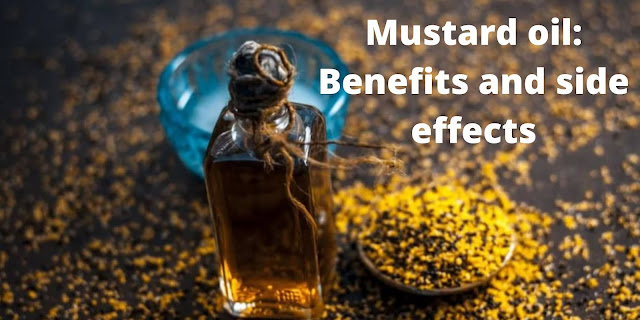Benefits of Mustard
Mustard oil is derived from mustard seeds. It is rich in monounsaturated fatty acids, which may reduce the risk of cardiovascular disease. Cooking with oil poses a serious risk, especially for children.
Mustard oil has been used in cooking and alternative medicine for centuries. Indian cuisine, in particular, uses mustard oil a lot. The oil's strong taste is due to a compound found in horseradish and wasabi.
Monounsaturated fatty acids are abundant in mustard oil, which could benefit cardiovascular health. It may also contain anti-inflammatory compounds.
The use of mustard oil is controversial, and the potential risks are so great that the Food and Drug Administration (FDA) has prohibited its use.
This article will discuss the benefits and risks of using mustard seed oil.
Benefits for the cardiovascular system
The consumption of mustard oil may help lower the risk of cardiovascular disease.
Monounsaturated fatty acids are abundant in mustard oil. Monounsaturated fatty acids can reduce the risk of cardiovascular disease, according to several studies.
A systematic review found that people with diets rich in monounsaturated fatty acids had lower blood pressure and less body fat than those consuming fewer of these acids. High blood pressure and a high body fat percentage increase the risk of cardiovascular disease.
Olive oil and avocados contain more of these fatty acids than mustard oil.
These potential benefits are likely to be very small when compared to other factors that influence cardiovascular risk. Consuming mustard oil will not compensate for a generally unhealthy diet or inactivity.
Potential anti-inflammatory properties
Mustard oil contains a compound that could reduce inflammation: allyl isothiocyanate.
A study found that allyl isothiocyanate has anti-inflammatory properties. Study authors noticed this effect in cell cultures, which are cells grown in a controlled environment. They also found that the anti-inflammatory effect was much smaller in mice.
According to the findings of a more recent study trusted Source, allyl isothiocyanate reduced inflammation and had a range of other benefits in mice suffering from colitis, a condition that causes inflammation in the colon.
Many health problems are characterized by inflammation and can lead to a variety of symptoms. Mustard oil may be able to treat these issues if allyl isothiocyanate reduces inflammation. Currently, however, there is no evidence to support this claim.
Nutritional value
The mustard plant is native to Europe. Several varieties are available, and the seeds are used in many foods and condiments.
Mustard oil is made by pressing or grinding these seeds. It is much stronger than mustard.
Monounsaturated fats make up most of the fatty acids found in mustard oil. 100 grams of mustard oil contain:
- 59 grams of monounsaturated fat
- and 21 grams of polyunsaturated fat
- and 11 grams of saturated fat
A component of mustard oil called allyl isothiocyanate contributes to its strong taste and may provide some health benefits. Horseradish and wasabi also contain this compound.
Risks and side effects
Mustard oil cannot be used as a cooking oil.
Because mustard oil contains high levels of erucic acid, it may pose a serious health risk.
Several oils contain this monounsaturated fatty acid. Erucic acid is generally safe in small doses, but higher levels are dangerous.
According to animal studies, erucic acid may cause a heart condition called myocardial lipidosis over long periods.
Humans may not experience the same effect, but high levels of erucic acid could pose risks to certain groups, including children.
According to the FDA, mustard oil is not safe to use in cooking because of its high erucic acid content. This means that the FDA does not permit its use as a cooking oil in the United States.
Instructions for use
You should never use pure mustard oil in cooking or as a dietary supplement. Avoid eating or drinking it.
Mustard oil can be applied topically
As an essential oil, mustard oil is available. Dilute it in a carrier oil before applying it to the skin.
A mustard essential oil should not be diffused near those who may be allergic to it. If taken internally, the mustard essential oil is toxic.
Summary
Mustard oil is rich in monounsaturated fatty acids and may have some health benefits. However, there is little direct scientific evidence to support this.
The FDA prohibits the use of mustard oil for cooking because it may pose a serious health risk.
More research might be able to determine whether mustard oil is safe in the future. For now, it is best to avoid it.



Feel free to ask me any questions you might have